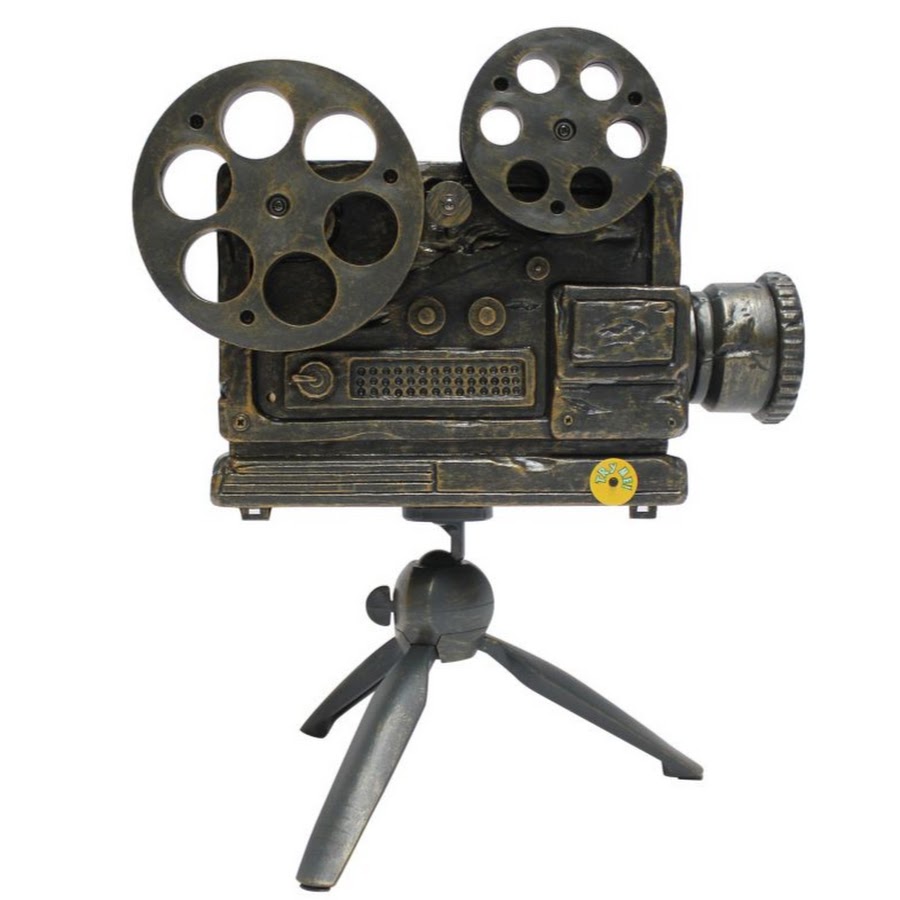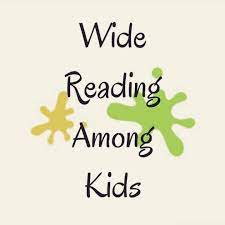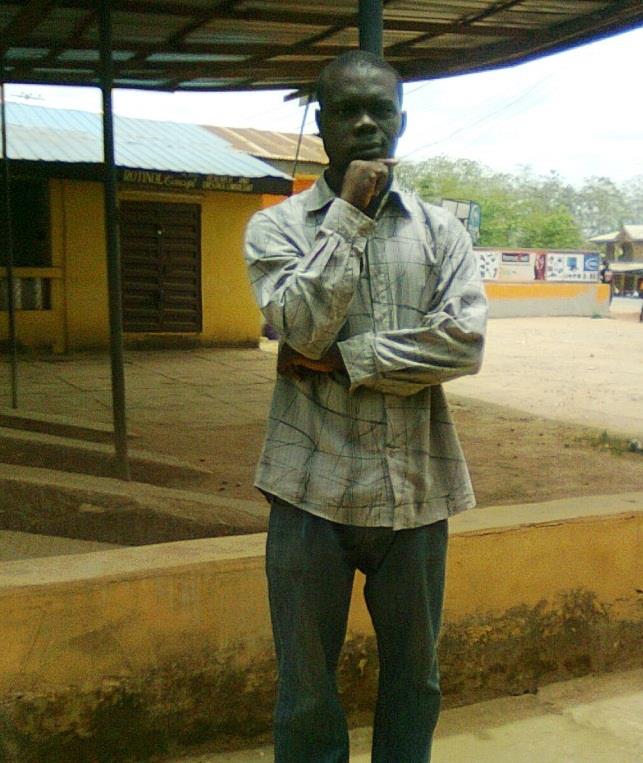The Ghost Trolley: A Tale for Children and Their Adults
By Christopher Bernard
Chapters 11, 12, and 13
Chapter 11. The Altar of Ramora
But Petey was nowhere to be seen, and they ran blindly on.
Petey had gone off like a shot after the Korgan kids, just managing to keep them in sight as he caromed through the crowds, mostly of soldiers, but also of women and children, civilians and elderly, horses with six legs and donkeys with three ears and odd-looking draft animals he had never seen before: something that looked like a cross between a camel and a giraffe, moving ponderously under a pile of domestic furniture, including a strange kind of piano with a tuba stuck to its back and a stove as long as a sofa, and other creatures, apparently used in battle: one looked like an ostrich covered with armor and with the head of rhinoceros, and another one looked like a flattened hippo with the head of a pig and the beak of a crocodile; it carried a kind of Gatling gun with barrels spread in a circle, slowly twisting like a pinwheel on its side – a strange weapon made to kill everything in a 360 degree circle, leaving alive only the gunner and the piggy hippo crocodile to tell the tale: all of these were either the results of manipulating genes (he had heard about that in school) or different evolutionary paths taken in this weird world called Otherwise, just as the Creels’ strange speech was no doubt the result of a different evolution of language.
But he had no time to wonder about these things. Smoke wafted across the camp like an army of ghosts, burning his eyes. He looked back once or twice, looking for Sharlotta and the others. Maybe this had been a bad idea. But it was too late to turn back, and he ran ahead, afraid to lose Bang Bang and Blue Moon in the confusion.
But they were nowhere to be seen.
They had run in the direction of a distant iron-like skeleton of a tower toward the south; maybe that was where he should be going. But first he had to find Sharlotta and her brother and sister.
Then he saw the strange religious thing he and Sharlotta had seen moving through the camp earlier. The Altar of Ramora (as Sharlotta had called it), stood silent and still, draped in black and red, with the crossed lightning bolts rising above the gathering smoke like a gleaming symbol of a dreaded power. Standing in front of a huge tent with spire-like towers, crowned with the forked lightning, at each end, like an enormous temporary temple or church, it loomed ahead of Petey unguarded in the melee, left there after the completion of the macabre ceremony they had witnessed ,like an abandoned float at the end of a parade, and he ran toward it.
The bottom of the altar was surrounded by a kind of apron drape, and Petey slipped under it and huddled there, pulling up the drape to peer out at the turmoil unfolding outside.
After a few moments of watching, he slipped out and called, at the top of his lungs, “Shar-lot-ta!” then scurried back under the altar.
In all the turmoil, no one seemed to notice what must have sounded like a name that sounded very suspiciously un-Korgan-like name – especially given the suspicious fire.
After a moment, Petey slipped outside again and repeated the call: “Shar-lot-ta!” then ran back under the altar. Then he did it again. . . .
Sharlotta and Beely and little Johja were running at random through the smoke and confusion, hunkering down briefly, here behind a tent, there behind a truck, there behind a parked soldier convoy, driven in to combat the fire and control the panic. Bursts of crackling gunfire in the near distance made her blood freeze, and her little siblings started whimpering.
This brought unwanted attention, as some of the adults, mostly female, turned to them with disapproving looks or the kinds of concern Sharlotta knew was the last thing they needed.
They almost ran into an elderly Korgan lady, who turned to them with a worried look on her wizened face.
“Are you lost, dear?” she asked.
Beely looked like he was about to offer a candid reply, but Sharlotta wasn’t about to let it be known by this woman – no matter how kindly she seemed – just how lost they were, and ran off, pulling the little ones with her.
She wasn’t looking where she was going and this time ran right into someone and fell, taking the little ones with her. Their whimpering erupted into full-throated wailing. Sharlotta, frightened, looked up at the person she had bumped into.
It was Blue Moon, staring down at her with a triumphant grin.
“I knew you were Paonas!” she crowed, in her deep, froggy voice. “Did you set the fire? I bet you set the fire!”
“Quite done!” Sharlotta shouted at her brother and sister, who were wailing even louder. “We not start a fire! We nearly burn alive ourselves! Look my jacket!” And she showed Blue Moon the black smears from the ashes across the bright red cloth, from her burned-down home. “Would I burn myself? And”—gesturing toward her wailing siblings—“would I bring two crybaby along with me if I mean to start a fire?”
This stopped Beely in mid-wail.
(“I be not a—!” he was starting to say when he was interrupted.)
“Maybe,” said Blue Moon, skeptically, ignoring Beely and staring straight into Sharlotta’s eyes, “and maybe not. But I think I’ll call a guard to find out!”
And she raised her hand to her mouth to call out.
“Do not, please!” Sharlotta pleaded. “You be right – we not Paonas, but we Creels, their friends. We be . . . we be kidnapped!”
Blue Moon snorted. They didn’t look very kidnapped. “Who kidnapped you?” she demanded.
“A soldier with eye-patch.”
This had an immediate, and peculiar, effect on Blue Moon, whose face went slack, her eyes turning strangely cold as they seemed to penetrate into Sharlotta’s own.
A moment passed, and Sharlotta was afraid she had just said exactly the wrong thing.
“You were kidnapped by . . . Orgun Ramora?” Blue Moon asked, with the coldness of an adult, though her voice hesitated before speaking the name, as though reluctant to let its syllables cross her lips.
“I not know his name. We just call him One Eye.”
“He belongs to the royal family.” Blue Moon stopped, to let this sink in. “He is the cruelest Ramora of them all. Everyone hates him. Everyone hates . . . Orgun Ramora of Ramora, for his cruelty, for his lies, for his greed, for his cowardice, for his pride, for his . . .” Blue Moon faltered. Her eyes darkened with a rage that frightened Sharlotta and made the two young ones freeze. “And you . . . you . . . ,” she continued, “. . . escaped him?”
“Well,” said Sharlotta, “we not escape yet.”
Blue Moon stared at the three of them. Her eyes suddenly filled with a mixture of anguish and an almost icy anger, but Sharlotta wasn’t sure whether the anger was for Orgun – or for them.
Little Johja, who had stopped crying and was staring at Blue Moon with a curious fascination, went up to her and, staring as if for all the world she wanted to console her, put out her small hand and touched the Korgan girl, whose anger seemed suddenly to melt away as she stared back at the tiny Creel.
It was then that Sharlotta heard her name shouted in the distance.
“That be Petey!” she said, peering in the direction of the shout. It wasn’t clear exactly where the shout had come from, and she looked about in confusion.
“It was from there,” Blue Moon said, pointing toward a distant yellow gleam against a curtain of black smoke: a golden X of crossed lightning bolts, notorious symbol of the loathed enemy.
Sharlotta looked at Blue Moon dubiously – could she trust her? What if she was sending them into a trap? After all, she was sending them toward the center of the fire – but then, what alternatives did they have?
Muttering an uncertain “Thanked be you,” she grabbed her siblings and started running toward the distant gleam. She glanced back and saw Blue Moon, who was watching them a little sadly, vanish in a swirl of smoke.
The three children were running against the current of rushing Korgans, so their progress was slow. Sometimes they lost sight of the golden X. Then it would pop up above the tents again, sometimes closer, sometimes farther away, and they would have to turn back toward it again and struggle on. At one point Sharlotta picked up little Johja and let her ride on her back.
Then she heard Petey shouting her name again, this time not far away.
“Come on!” Sharlotta cried out encouragingly as Beely was starting to blubber and Johja was hugging her neck fit to choke her. “We be there, almost.”
And, heedlessly, she ran straight through a troop of Korgan soldiers running toward them.
“Watch it!” the Korgans shouted as the soldiers parted for them. A short, stubby Korgan glared at them.
Then they turned into an open space, and Sharlotta saw the crossed lightning bolts standing against the sky above the priest’s moving altar, and she turned away in disgust. She slipped, pulling her siblings behind her, under a kind of food truck (it looked like) parked nearby, hunkered down behind one of the wheels and peered outside.
Chapter 12. Caught!
Petey was starting to feel discouraged: he’d been shouting his head off for fifteen minutes; they should have heard him by now, they hadn’t been that far away. And he knew he shouldn’t shout an obviously non-Korgan name too often without drawing attention to himself, even in the middle of the mayhem. The memory of the torture chamber made him want to avoid capture at all costs: the torture instruments had been lined up in the dismal cell in a row of increasing terror – One Eye had only just begun his monstrous work on Sharlotta’s poor father, and look what a wreck the Korgan had made of him. Sharlotta had better bring her brother and sister here soon, or he’d have to go looking for them.
Then he heard a pair of little feet running up on the other side of the altar. It was about time!
The feet stopped, then a small figure dunked under the apron, and Petey’s voice, about to call out, stuck in his throat.
It was Bang Bang.
There were half a dozen wooden rollers in the dimly lit space under the moving altar, and Petey snuck behind the closest one, between him and the apron, not realizing that this caused a prominent bulge in the drape outside.
“Paona!” Bang Bang called out. “I know you’re in here – I heard you shouting! Who but a Paona would have a funny name like Sharrr-lut-tuh!”
Petey froze.
Then he heard a strange voice behind him.
“What’s this?”
A hand pulled up the drape, grabbed Petey by the belt, and dragged him outside. Another hand grabbed him by the back of his shirt and yanked him off the ground, and Petey dangled there, about a foot from the ground, facing a short, stocky Korgan soldier in a rumpled uniform and with a scar across his face, which was an inch or two from Petey’s own face, glowering at him.
“What’re you doin’ under the Altar of Ramora, you little—why, you don’t look . . .” the ugly Korgan was saying as Bang Bang scrambled out into the open.
“He’s a Paona spy!” Bang Bang shouted. Then he added, on an inspiration: “He started the fire!”
Of course Bang Bang had not seen Petey light the black tent with his match, nor had he seen Petey set the trash fire to distract the guards before that – he was just guessing. But Petey realized how plausible it all sounded, and his shirt collar was choking him too hard for him to deny or protest with anything but an inarticulate gagging sound.
“Gaggh!” he protested. “Gaggh!”
“What’s he saying?” said the short Korgan.
“How should I know?” said Bang Bang. “I don’t know Paona!”
Then he moved in for the coup de grace.
“But I can prove it!” And he jumped up and snatched Petey’s cap off his head, uncovering Petey’s blaze of orange hair.
“Gaggh!” Petey protested even more loudly.
The Korgan needed no further proof.
“Just another Paona lie! We know what to do with Paona liars and fire lovers! We give them a little of their own medicine! We let them lie on their own fire! Hey, redhead! How would you like that?” And the soldier laughed uproariously at his joke. “We let them lie on their own fire!”
“That’s right!” shouted Bang Bang, not quite getting the pun but laughing to pretend he did. “That’s right!”
And the soldier jerked Petey by his shirt and started off toward where the fire was raging across the camp.
Bang Bang ran after them, taunting Petey as he swung like a pendulum from Scarface’s raised fist.
Sharlotta had watched the whole scene from under the food truck, which, unattended, had supplied the three of them with a dozen stale doughnuts without holes for a belated breakfast, as they were all famished.
She watched helplessly as Petey was marched off. She so wanted to follow them, but she also had to think of her siblings. It was bad enough to have to abandon her parents till they found an escape route, but she couldn’t abandon Beely and little Johja, however briefly, on what might well be a hopeless mission to rescue Petey – and if possible, pay back Bang Bang. On the other hand, she owed Petey – they all did. And she liked her new friend – he had proven he was a friend – from Howtiz. If only his hair weren’t so orange!
She could not just let them hand Petey over to be tortured or worse (she hadn’t heard the Korgan’s terrible words but knew he meant Petey no good). She had to take a chance.
“You see them take our friend Petey away?” Sharlotta said, pointing toward the stubby Korgan and Bang Bang and Petey, who hung by the scruff of his neck, like a cat, from the Korgan’s outstretched arm as they moved off.
The little ones nodded somberly.
“Well,” said Sharlotta, in her most grown-up voice, “we must to rescue our friend. And you must promise be very quiet and not make sound, because if you do, we might be caught again, and you know what happen then!”
Remembering what had happened to his father, Beely whimpered and little Johja blinked hard, twice.
“Not whimper!” Sharlotta commanded. “That be just what I mean! We must be quiet absolute.”
And Beely stopped, in mid-whimper, cleared his little throat and became quiet.
“We must to make no sound, until I say so!” Sharlotta went on. “So – you promise?”
Beely squeezed his lips shut in what looked like a tightly squeezed upside down horseshoe, and stopped breathing.
“You can breathe, Beely – just not make sound!”
Little Johja looked at Beely and then at Sharlotta and blinked hard, and then nodded in solemn silence.
“Breed!” she said. “No sound!”
“Keep close to me now,” Sharlotta said, and they snuck out from under the food truck and went after the departing trio, who she could just see disappearing into the smoke.
Unbeknownst to them, a small shadow appeared from behind a donkey tied up not far from the food cart, and quietly flitted after them.
“Haugh!” went the donkey.
“Oh!” said the shadow, turning back and impatiently untying the donkey, which fled away from the smoke. Then the shadow ran after Sharlotta and the little ones just as they vanished around a corner.
Chapter 13. The Shed
“We got a little arsonist here!” the Korgan cried out as he marched Petey through the camp. “We got the little Paona firebug!”
Korgans stopped along the way and shouted angrily, “What? Who?”
“We got who started the fire!” the stumpy Korgan shouted back.
“You got him?”
“We got him! Here he is! We’re going to burn him in his own fire!”
And they were soon surrounded by angry Korgans marching with them in a small ragged, whooping crowd toward the fire.
“Burn the arsonist! Burn the Paona! Burn him! Burn him! Burn him!”
The soldier, though he was short, held Petey above his head high as he could stretch, where the boy swung helplessly, petrified with terror above an angry sea of Korgan faces, fingers pointing and fists shaking at him. Some of those near him pinched and slapped him. All taunted and harassed the helpless boy.
One of the bigger Korgan soldiers suddenly grabbed Petey and lifted him up even higher, so all could see the malefactor. Petey felt himself starting to cry as he was lurched high in the air.
“Burn the Paona! Burn him now!”
Sharlotta, who, with her siblings, was following just beyond the fringe of the crowd, had, in a panic, for a moment lost sight of Petey, but now she could see him again, stiff with fear, lifted in the big Korgan’s hand above the heads of the mob.
“Burn him! Burn him! Burn him!” the crowd chanted. “To the fire! To the fire!”
And they hurtled in a wave toward the conflagration that was eating its way across the camp like a rising tide, carrying Petey to it like a criminal or a sacrifice.
As the crowd approached the fire through shrouds of smoke, they suddenly halted and parted, and Petey, half fainting from fear and smoke and the heat, blurrily saw a figure he dimly recognized, dark against the flames, come up to the Korgan who was holding him.
“Bring the little imp with me,” the figure, who was covered with ashes, his clothes torn and burned, ordered gruffly. “He’s not alone. Our little firebug helped free the captives. And you know where they are. Don’t you.”
The figure grabbed Petey’s forelock and wrenched his face up until the boy found himself staring, teary eyed, into the face of One Eye.
“No, sir,” Petey whimpered, honestly enough. Right now he felt like he knew absolutely nothing whatsoever.
“We’ll see about that,” said One Eye. And he slapped Petey’s head down with contempt.
“Go!” One Eye shouted at the rest of the crowd. “Help save the camp, or go save yourselves!”
And the crowd, shaking their fists at Petey one last time, reluctantly dispersed. They had missed their chance for a little entertaining revenge, seeing the little arsonist fry in his own fire.
“We have work to do,” said One Eye to the two soldiers and eyeing the fire defiantly. “While we still can.”
Then he stalked away, the two soldiers, the tall one and the stubby one, following with Petey. They marched him to an ominous-looking shed far off from the fire and tossed him inside.
The silence within the dim, foul-smelling shed was profound. There was only one small window, high in the wall and covered with a film of dirt and cobwebs. They might have been a thousand miles away from the mayhem roiling the camp. One Eye clearly had only one thing presently on his mind.
“Now, you imp,” he said to Petey. “We need to have a talk.”
One Eye suddenly grinned genially, looking Petey over from where he towered above him.
“I’ll say that’s quite clever. You almost look like a Korgan kid. I thought all of you Paonas hated dirt, but you’re practically bathed in mud . . .”
“I’m not a Paona!” Petey blurted out.
The Korgan stared coldly at him.
“You do look strange for one, or any of their . . . ‘friends.’ Wrong ears. Wrong skin. Wrong voice. Above all: wrong hair! What are you, then?”
Petey was a bit startled by the question. He had never asked himself that. He thought for a hard moment. What, in fact, was he?
“Well?” the Korgan demanded.
“I’m a little boy!” Petey said, defiantly. “I’m a person!”
The Korgan’s eye screwed into a red scowl.
“A little boy! A person!” he said, with disbelief and disgust, as if Petey had claimed he was a wobbly gnat or the prince of the stars. “Where are you from?”
Petey remembered something Sharlotta had said, then said, speaking carefully, “I’m from Howtiz.”
One Eye’s face went slack for a moment. His expression was inscrutable.
“You’re a little boy from Howtiz, are you? Well, I think you’re just a little firebug liar! I’m a Korgan – and this is how it is!” And he slapped Petey as hard as he could across the face.
Petey’s head snapped back and he saw stars – in different colors, in broad daylight. He had tried to answer the questions as honestly as he knew how – and he was being accused of lying? Petey had never been very good at lying – his parents had always said he was transparent. And now he was being punished for telling the truth? He was shocked and frightened. What could he say that One Eye would believe was true?
“Now, who are you, and where are you from?”
“My name is Petey Myshkin Stephenson, and I come from the town of Halloway. It’s in” and he named the state.
“Never heard of it! How did you get here?”
“A yellow trolley,” Petey muttered, anticipating another slap.
“What? Speak up!”
“A yellow trolley . . . to Otherwise,” Petey said, lowering his head.
“And how long have you been – in Otherwise?”
“Since this morning.” Right now it felt to Petey like a year at least.
“This morning! So you were in it before we blew it up?”
One Eye was silent for a moment.
“Yes,” said Petey in a small voice.
As Petey’s head was still bent in submission, all he could see of One Eye was his muddy boots; they looked just like the boots he had seen in the grass this morning, except they were now also smeared with ashes as well as mud, and streaks of red he did not want to think too hard about.
“You’re more dangerous than I thought,” the other said, almost to himself. “Or you’re more valuable.”
There was a shriek outside the door, and the two Korgan guards entered, dragging in Sharlotta, Beely and little Johja. Sharlotta was raging, in full combat against Big Boy (as, in his mind, Petey called the tall Korgan), who was carrying her, and Beely was pop-eyed with wonder and little Johja wailing in the arms of Scarface, who Sharlotta gave a vigorous kick to whenever he got too close.
“These Paonas were sneaking around the shed,” said Big Boy.
One Eye gave the new captives a frosty look, recognizing the little ones from his interrogation session with their father that morning. Then he grinned. This was turning out better than he could have conceivably hoped. Wherever the chicks were, the hen, and her wounded rooster, could not be far behind.
He gestured to a corner. “Put them there.”
The guards tossed the three children into the corner and left.
“Let us be out of here, you . . .” Sharlotta shouted at the top of her lungs: “bully!”
“If you wish me to kill your Howtiz friend here,” One Eye said in a quiet voice, gently swinging Petey up off the ground like a pendulum, “please, keep it up.”
Sharlotta went silent but did not switch off her glare.
“All we have to do now is wait for the parents,” said One Eye, coolly. “They can’t have gotten very far after what I did to your daddy.”
At this Sharlotta went red with rage, but kept quiet.
One Eye – or Orgun Ramora of Ramora, as Sharlotta knew his name to be – stared thoughtfully at Petey, who the Korgan had dropped into the opposite corner, and stood for a long moment, towering above him.
“You know, young man,” One Eye said at last, his voice suddenly soft. “You and I do not have to be enemies. You do not, in fact, owe these Paonas anything. Look at them—” And he turned and gestured toward the trio—“shivering like cold and hungry animals, weak and vulnerable and helpless. All they have done is get you into trouble. One nasty thing after another! And now you’re even accused of starting the fire. What have they given you? Trouble. What can they do for you? Nothing. Now even your life is at risk. And why? Because of them. It would have been better if you had never met them. It’s a pity. Nothing whatsoever can save them now. But”—And his voice became even softer.— “you can be saved. You and I can be friends. I can protect you and get you out of this . . . this mess. I can convince the crowd outside that you had nothing to do with the fire. They will listen to me. You understand that, don’t you? You believe that, don’t you?”
He waited. Petey gloomily nodded where he stood unsteadily on the dirt floor.
“All you have to do,” One Eye went on, “is tell me one thing.”
The boy, silent and suspicious, stared up at the powerful Korgan. He felt a tug of anticipation. And he also felt remorse, as if he had already, in his heart, betrayed his friends.
“If you just tell me exactly where the yellow trolley entered Otherwise.”
“Well,” said Peter, with an ill-timed attack of common sense, “if you just follow the tracks where you blew the trolley up, you can find it out for yourself.”
One Eye’s face went cold and he raised his hand to strike Petey again. Then he seemed to think better of it and lowered his hand. “The tracks disappear in the woods. They disappear in a tangle of metal and flowers, a cloud of ferns, a fog of shadows. No; there is no way for anyone to find the way to Howtiz that way. I need to know exactly where you entered Otherwise.” One Eye seemed to catch himself, and his voice went soft again: “You can remember that for me, can’t you? Anything at all you remember of the exact moment you came here. Tell me that, and you’ll be free as a bird. Freer! Birds can only fly. But you are a little boy, a person, and you will be as free as the soul – something we Korgans do not have, and for which I envy you. Yes, I admit it: I envy you that!” One Eye suddenly appeared abject, humble, even pained. He suddenly knelt in front of Petey, so he no longer towered above him but was at the level of Petey’s face. “I’ll tell you a secret, just between us. We, all of us here in Otherwise, have no souls. We are only flesh and bone and meat, energy and matter. We are not real. And we long to become real in the only way we can: by entering Howtiz. . . . I’ll tell you what,” One Eye said, in an intimate voice, looking down at the floor for a moment, then looking up again. He had suddenly looked vulnerable, and Petey almost felt sorry for him. “If you take me to the place where the yellow trolley entered Otherwise, I’ll help you go home, back to your parents and your friends and your family. You can leave all of this behind you, as if it were no more than a bad dream. No more nasty Korgans, no more big, ugly one-eyed jailer. No more fear. You can go home. You can forget that all of this ever happened . . .” The Korgan stopped, paused to consider; then suddenly said, as though just thinking of this, and as if it were the greatest gift he could possibly offer: “One more thing. Not only will you be free. Your friends here will be free too.” He gestured toward the three frightened children huddled in the opposite corner. “You will all be free.”
Sharlotta, straining her ears, could hear most of this despite the intense quietness with which Orgun Ramora had spoken, and, her mind whirring at an astonishing pace, she suddenly realized the implications: if the Korgan discovered where the yellow trolley had entered Otherwise, not only was Otherwise in danger of being lost, but the world that Otherwise depended on to exist at all – the world of Howtiz – would finally, after generations of conflict and centuries of struggle, be vulnerable to conquest by the Korgans. Everything would be frozen, entombed, forever in Is. And there would be no Otherwise again.
“Petey! He lie! He never let you free! He never let us free! Not tell! Never tell . . . !”
“Shut up, Paona . . . !”
Petey froze, terrified and guilty. He had been on the verge of telling what he remembered seeing as the yellow trolley had entered Otherwise – the old covered bridge in the woods not far from the field of battle – the prospect of escaping back to his home from Otherwise was the greatest temptation he had ever felt. But a little voice in the back of his mind told him, if he did, he would never escape Otherwise alive.
One Eye, infuriated by the girl’s outburst, slipped off his belt and approached her.
At that moment there was the sound of stone hitting the dirty window.
This was followed by a shout, in a strange, froggy, childlike treble, “Orgun Ramora! I dare you to face me!”
The Korgan stopped and crept up to the side of the glass, flattening himself against the wall, and peered carefully out. His face froze as he seemed to recognize the person outside. He looked down and to the side.
“Little one . . .” he muttered under his breath.
Suddenly he glanced to the other side of the window, but too late. A mirror lying in the dirt outside the hut was laughing at him. But the danger was not coming from there, it was from the exactly opposite direction . . .
An explosion shattered the window and One Eye reeled back into the room, glass shards sticking from his face – a missile had broken the window, piercing his eye – and, shouting in pain, he stumbled blindly around the room.
A moment later, the face of Blue Moon appeared in the window and she fumbled it open and slipped inside, pressing her finger to her lips so none of the others would give her away. A little sling shot lay over her shoulder. Blue Moon lightly ran to the corner farthest from the broken window and shouted to get One Eye’s attention, while pointing from the others to the open window.
“I’m frightened, I’m scared!” Blue Moon cried out in false, high tones. “Oh! oh!”
“You!” roared Orgun Ramora.
He lunged at Blue Moon, rocking from side to side unsteadily on his legs. She slithered between his knees and ran to the corner away from the window, and squealed. He lunged after her.
As this crazed dance of the Korgans – one big, blinded, in pain, the other small, alert and making shrill, squealing noises – went on in the shed, the four other children, as quietly as they could (the two little ones had been terrified into silence), crept to the window and crawled out, Petey first with help from Sharlotta, then the two little ones, then Sharlotta herself, as Blue Moon taunted and distracted the raging, sightless Korgan, like Odysseus the Cyclops in the ancient epic.
Sharlotta looked back one last time before slipping to the ground, just as Blue Moon, with a shard of glass in her hand (it seemed to be bleeding), struggled with One Eye, and just as, as bad luck would have it, he reached out at random and grabbed her by the neck, and squeezed with a surprised cry, “I have you, little one!”
“Sharlotta!” Petey shouted, and she leapt to the ground, not knowing what happened next inside the shed.






